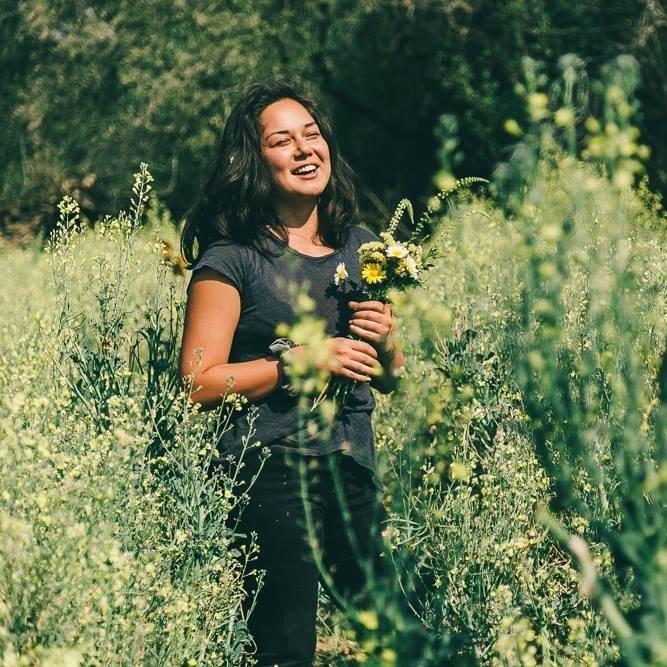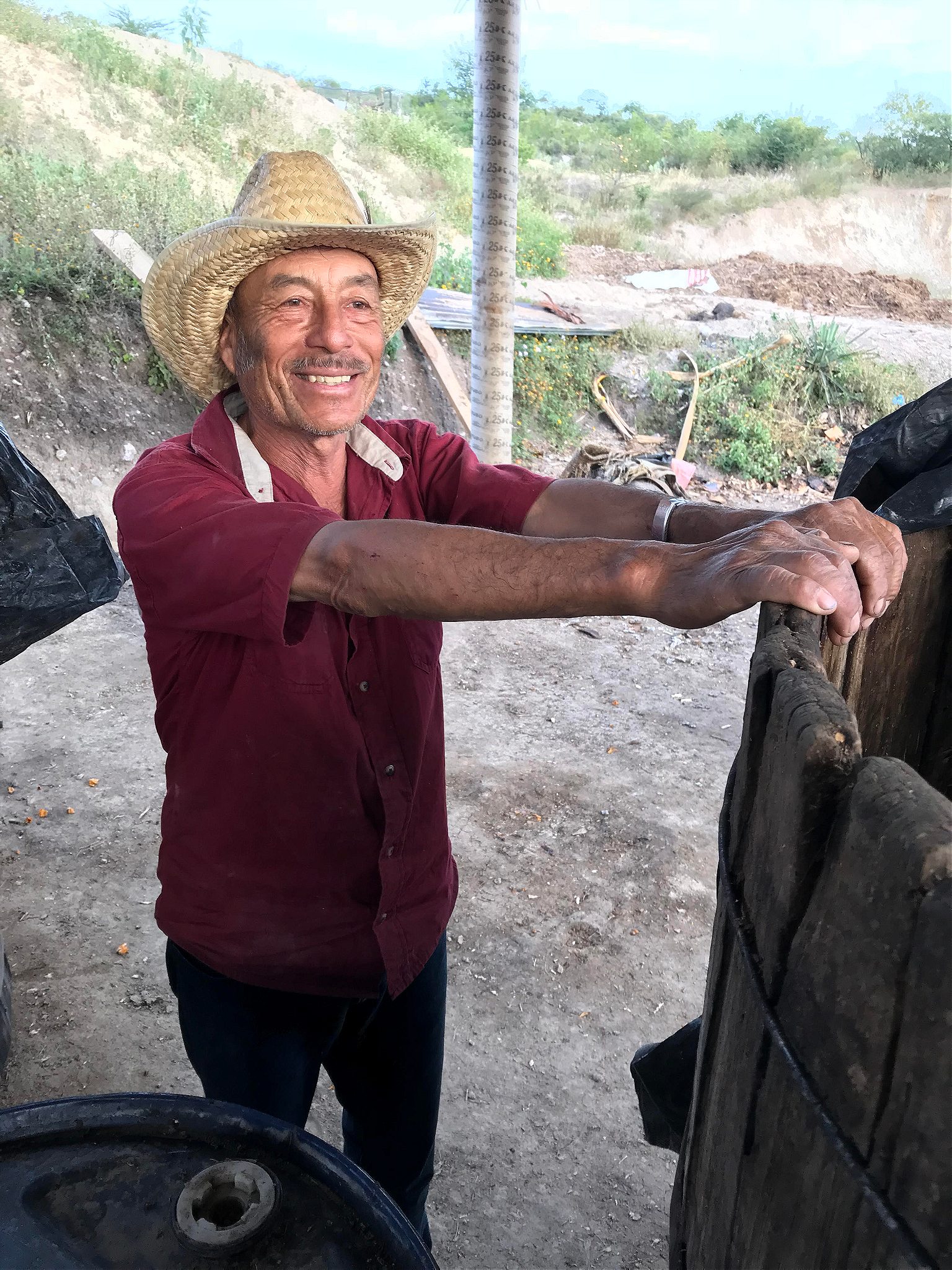
Marketing a Better Mezcal

This week on The Trip, Niki Nakazawa talks with host Nathan Thornburgh about leaving behind the art world for the food world and the future of mezcal.
Niki Nakazawa’s path took her from the northeastern US to Mexico City to Oaxaca, from art to food and now to Neta, a mezcal brand devoted to supporting small producers. This week on The Trip: Drinking with Exceptional People Around the World, she talks with host Nathan Thornburgh about the future of mezcal and why Mexico is a great place for hustlers.
Here is a condensed transcript of that conversation. You can listen to the full episode, for free, on Apple Podcasts, Stitcher, Spotify, or wherever you get your podcasts.
Nathan Thornburgh: What brought you to Mexico City?
Niki Nakazawa: When I was a student at the University of Chicago, there was a study abroad program in Oaxaca. So I came down to Oaxaca in 2005 and was here for about three or four months. I kind of totally fell in love with Oaxaca and with Mexico in general. I was able to study with some really great professors of Mexican history at university and then decided to move here right after college.
Thornburgh: But you didn’t come directly to Oaxaca?
Nakazawa: No, I moved to Mexico City.
Thornburgh: Why is that?
Nakazawa: Because I felt like Mexico City appealed to me in the way that you want to love this big, ugly thing. And then I discovered that Mexico City was actually quite beautiful. I liked the unwieldiness of it and how much of a mega city it was. I had made some good friends in Mexico City, so it just seemed like where I wanted to dip a toe first.
Thornburgh: So you eventually ended up being an editor in the artbook publishing world, but then you left that behind. You started working in food and you started running a company in Mexico City around that. How did that get going?
Nakazawa: I was working at this contemporary art gallery in Mexico City. We were a small team so I was doing a little bit of everything, which was great. But I just found this disconnect between this type of powerful work and the work that the artist was doing, while trying to figure out how I was going to be successful in my profession, which requires you to really rub elbows with the very wealthy of Mexico. And it just didn’t sit well with me.
Thornburgh: You were interested in powerful work, not powerful people.
Nakazawa: Exactly. I started to think about what would be my passport into another reality. Food seemed a really good one, especially living here in a country like Mexico. I have this wonderful friend, Emma Rosenbush who she was traveling through Latin America. She made a stop in Mexico City. We were just walking through downtown Mexico City and we started thinking about opening a restaurant. From that conversation emerged, this project called Pichón, which was a farm-to-table pop-up. It was like the most millennial thing you can imagine in Mexico City.
We also had a mutual friend of ours had just started this project called Yolcan, which was a sustainable farming project on the chinampas of Xochimilco. The chinampas are these floating gardens. They’re agricultural islands that were built during the 1400s. So we were like, “Yeah, people do farm-to-table restaurants, but no one else can do farm-to-table like this because we’re going to be using these living ruins.
Thornburgh: That sounds very difficult to pull off.
Nakazawa: Actually it wasn’t. I think that we really know what we’re doing the name of the project is Pichón, which in Mexican slang means novice. So we were a bunch of pichónes. We had no background in food. But we thought it would work. And it did, which was crazy.
Thornburgh: So how did you end up living in Oaxaca?
Nakazawa: I made the decision to move to Oaxaca because I have a mezcal company called Neta Mezcal.
Thornburgh: You started this company with a few partners from Mexico City?
Niki Nakazawa: So, my business partner is Max Rosenstock. He is from New Mexico and had been living in Oakland for about 10 years, and he started coming down to Oaxaca around 2010 and got into mezcal. He would ride around in his car and ask around for mezcal and had the great fortune of encountering some great producers. He started bringing all this mezcal by my house because he was friends with my ex-boyfriend at the time I was producing all these food events. He started asking me whether I would help him produce some events where he could sell some mezcal. I happily obliged and we started throwing these little speakeasy parties in Mexico City.
Eventually, he needed another partner in the formation of the mezcal company and he asked me. I agreed and decided I would love to have a mezcal brand without really knowing what it would entail or how long it would take to get to the point where we might be able to sell anything legally. So we formed the company in 2015, and now we’re going through the licensing phase.
Thornburgh: There’s this huge boom, that’s causing pressure in unexpected in odd ways for producers and probably for the local economy. How do you go about doing this endeavor the right way? What do you think are some of the things that need to be done to make it a good kind of business and not a gold rush kind of business?
Nakazawa: Well, honestly I think that mezcal it’s gonna be difficult to make it a gold rush type of situation. This is something that’s attached to a subsistence farming way of life. It’s not like you have producers with hectares and hectares of agave that are just ready for harvest. The lifespan of the plant is quite long.
I guess how I see it is trying to be a responsible brand is actually trying to present ourselves not as a brand. I’m not looking for like brand recognition in the way that, you know, people drink Patron or Hennessy. Neta, which is the name of our brand, and some other brands are the guardians of these agave plants and the producers. So we’re quote-unquote curating, which sounds maybe a little pretentious. We’re merchants. We’re selling what we consider the best shit.

Thornburgh: You’re a storefront whether or not you actually have a physical location. That’s the basic idea.
Nakazawa: Yeah, that’s the basic idea. My goal is for people to have good brand recognition. So maybe someone knows nothing about mezcal, but they’re going to buy from Neta because they know that Neta takes care of the product, chooses really excellent mezcals and, and works ethically.
Thornburgh: For you, what is the most important thing in ethics?
Nakazawa: I think that a mistake is to forget that really mezcal is tied to a way of life. So it’s not a product in the traditional sense. It’s something that’s tied to the land and is tied to certain life cycles. So again, a lot of these farmers aren’t making mezcal year-round as their main source of income. We are the beneficiaries of this way of life. It’s difficult to imagine a world in which you’re actually destroying that way of life in the interest of creating mega-farms.
Thornburgh: Where do you see Neta in five years?
Nakazawa: Well, I’d like to see a different type of commercialization around mezcal. I think it’s really important for people to understand the diversity of mezcal and to understand that maybe what’s more valuable for the culture of mezcal is to build a relationship with a producer. I want people to build their own collections of mezcal by forging relationships with producers. Buy some from this producer and that producer. Maybe in 10 years, you’ll have a really wonderful collection.
Thornburgh: Where can people find Neta mezcal in the U.S.?
Nakazawa: You can’t find them. We’re still working on the licensing. Hopefully, you’ll be able to find it soon in California, which is where we have our American company. That’s our main market. We can’t service the entire world, but we choose a place where we also belong and have community and that’s a place where Max has been established for a long time.
Thornburgh: This will be a race of your licensing versus our publishing this episode. Maybe we’ll get there around the same time. Well, thank you so much for taking the time to talk to me. It’s a fascinating moment for this business and it’s cool to see you here doing it.
Nakazawa: Thank you so much.
This conversation was edited and condensed. Listen/subscribe to the podcast on Apple Podcasts, Spotify, or Stitcher.